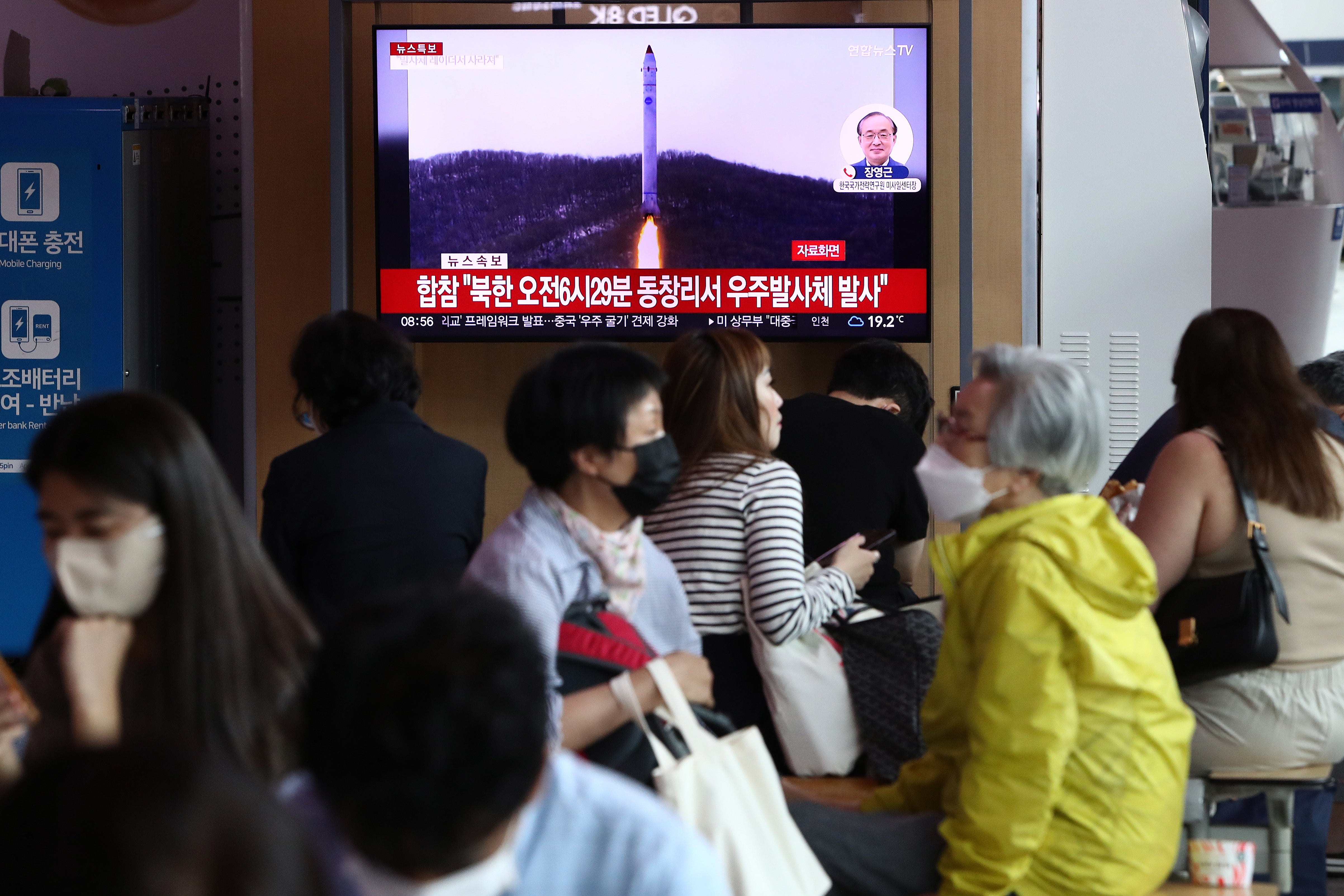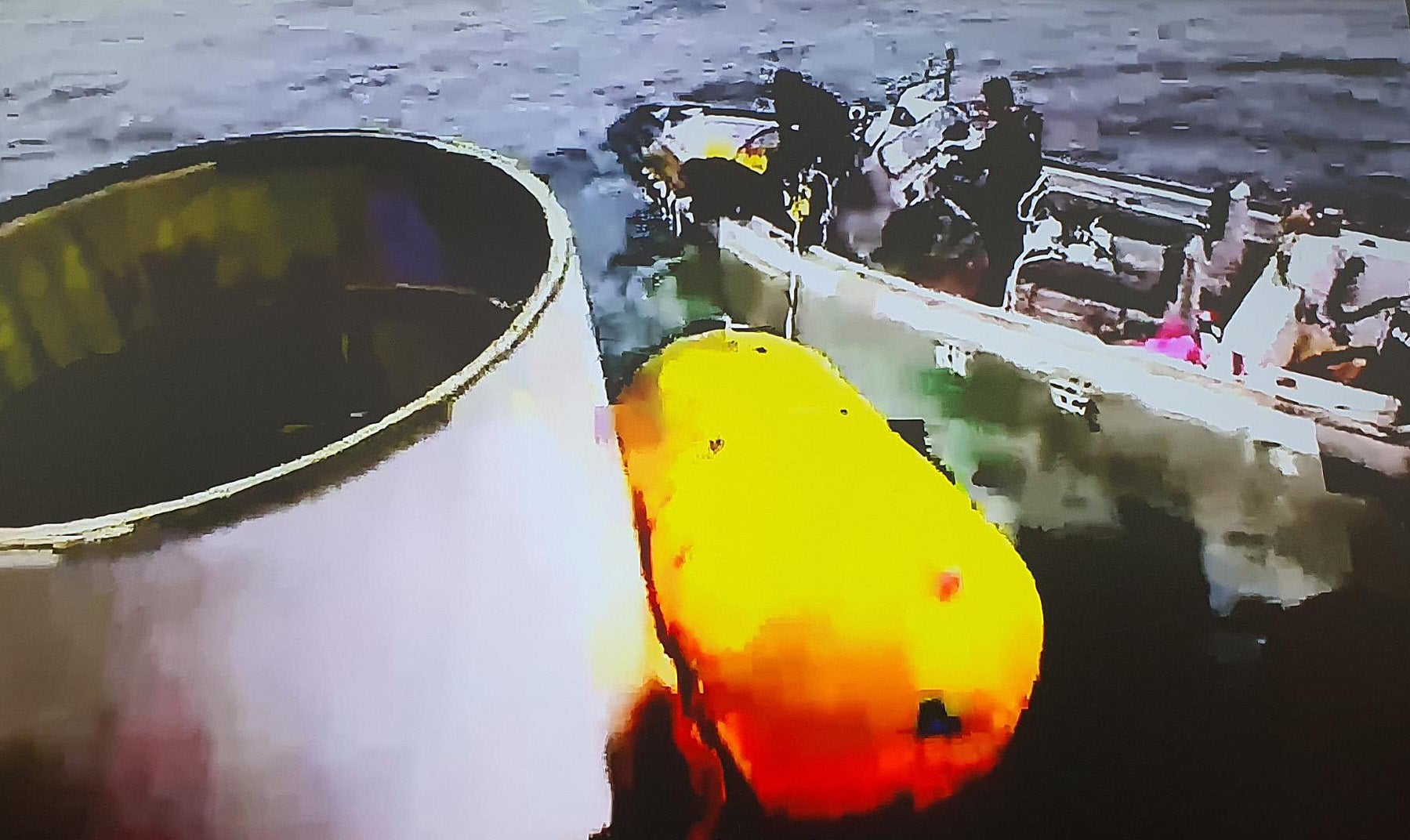Seoul residents angry after government retracts emergency warning: ‘No one will believe the real alarm’
‘It was really scary because the audio warning was so loud yet barely intelligible’
Your support helps us to tell the story
From reproductive rights to climate change to Big Tech, The Independent is on the ground when the story is developing. Whether it's investigating the financials of Elon Musk's pro-Trump PAC or producing our latest documentary, 'The A Word', which shines a light on the American women fighting for reproductive rights, we know how important it is to parse out the facts from the messaging.
At such a critical moment in US history, we need reporters on the ground. Your donation allows us to keep sending journalists to speak to both sides of the story.
The Independent is trusted by Americans across the entire political spectrum. And unlike many other quality news outlets, we choose not to lock Americans out of our reporting and analysis with paywalls. We believe quality journalism should be available to everyone, paid for by those who can afford it.
Your support makes all the difference.Seoul’s residents were left furious over early morning air raid sirens that disrupted their routines on Wednesday after North Korea launched a spy satellite.
Pyongyang failed to put the “Chollima-1” satellite into orbit and the rocket carrying it had crashed into waters off the Korean Peninsula’s western coast, local media reported.
In South Korea’s capital city, authorities sounded air raid sirens and sent mobile texts to residents as early as 6.32am on Wednesday, telling them to evacuate.
But the emergency warning was lifted soon, fomenting anger and resentment among locals. Authorities faced a barrage of criticism from the residents over the “mistakenly” issued evacuation alerts.
Many people reported waking up from sirens blaring through speakers at public schools around the city.
“It was so embarrassing,” a tech company manager, who asked to be identified only by her surname Lee, told Nikkei Asia. “My colleagues said they were so mad as babies were crying due to the alert message.”
“I was taking my two young children to a basement parking lot as advised, in shock,” a 37-year-old father who asked to be identified by his surname Yoon, told AFP. But the correction left him “speechless and outraged”.
“Now no one is going to believe a real alarm, just like in the fable about the boy who cried wolf,” he lamented.
“It was really scary because the audio warning was so loud yet barely intelligible,” a British teacher living in Seoul told The Independent. “In my 7 years living in Korea, this is the only time we’ve ever been ordered to prepare to evacuate.”

The order to send an evacuation alert was received from the central government’s disaster control centre.
“Please be prepared for evacuation. Let children and elderly people be evacuated first,” read the text message sent to residents. But then just 20 minutes later, authorities issued a correction and said the earlier alert had been “mistakenly” sent.
“I was so scared for... some 10 minutes, as I had no idea where to go and was concerned for my cat,” tweeted a Seoul resident.
An emergency alert was sent to residents in Japan’s Okinawa as well.
Seoul’s mayor Oh Se-hoon apologised for the confusion caused by the city’s emergency alerts, but defended the decision to do so.
He said the warning “could be an excessive reaction”, adding, “but we do not think it was issued mistakenly”.
“There should be no compromise on safety. It is our principle to take action, even if it can be excessive,” he said.

Lee Jae-myung, the main opposition Democratic Party leader, criticised the government.
“It is embarrassing that a mistaken alert was issued in the early morning,” he said. “The government should be calm and act properly in a crisis. It should be careful not to make people anxious and confused.”
The North Korean launch, meanwhile, failed due to a rocket malfunction and crashed into the sea.
UN secretary-general Antonio Guterres condemned the North’s military satellite launch.
“The Secretary-General strongly condemns the military satellite launch conducted by the Democratic People’s Republic of Korea,” Stephane Dujarric, the secretary-general’s spokesperson, said in a statement.
It was reported that Pyongyang might make a second attempt at the satellite launch before 11 June. Experts also believe that it is only a matter of time before North Korea has a functioning spy satellite.
“They said they would do it. They are remarkably open about their development plans,” Andrew Lankov, an expert on North Korea at Kookmin University in Seoul, told Al Jazeera.
“They are determined to do it. They have the means. They have the engineers. They have the money. They will do it. Maybe not now. Maybe there will be a few more attempts, but finally they will succeed,” Mr Lankov said.
“During a real attack, warnings and alerts can save lives by prompting people to take shelter,” Ankit Panda, a nuclear weapons expert at the Carnegie Endowment for International Peace in Washington, was quoted as saying by Financial Times.
“But false alarms erode public trust and can be actively destabilising in a crisis.”






Join our commenting forum
Join thought-provoking conversations, follow other Independent readers and see their replies
Comments